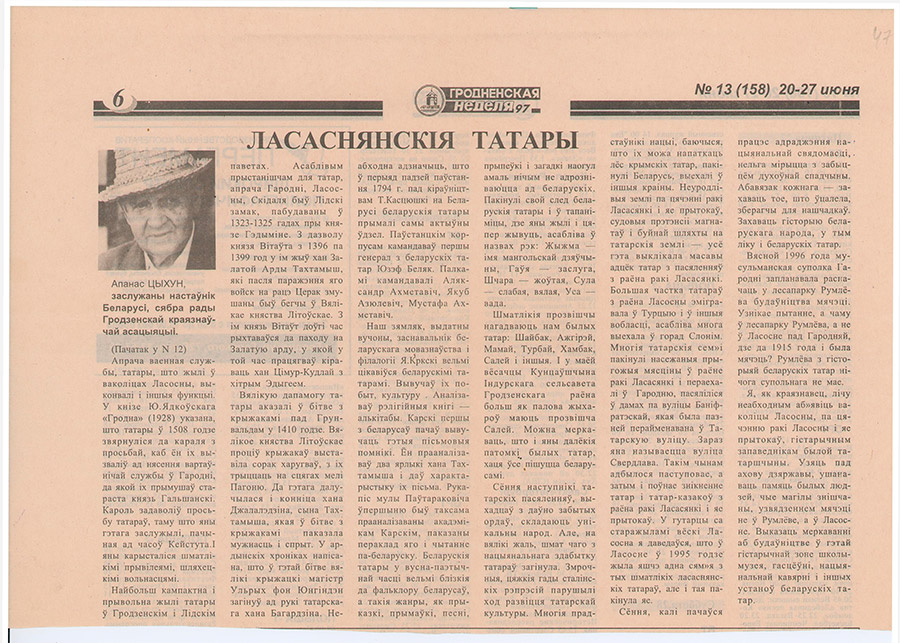International Friendship Day (On the occasion of International Friendship Day as part of the implementation of a joint project with the State Archive of the Republic of Tatarstan «Republic Day»)
Friendship is one of the most important human feelings, which helps people overcome difficulties, rejoice together and share their experiences. It connects people and makes them stronger.
Friendly relations between countries contribute to the development of economic cooperation, cultural exchange, scientific and technological achievements. Mutual understanding also allows international issues to be resolved through diplomatic dialogue and respect for each other’s interests.
Friendship between Belarus and Tatarstan has a long history of exchange of culture and traditions, and economic cooperation. Both peoples have rich historical ties that strengthen their relationship.
Belarusian Tatars have always influenced the development of culture, history and society in Belarus. They have been one of the national minorities in the country since ancient times and contribute to various spheres of life.
For example, throughout its history Minsk has been a multinational city. This is evidenced by its toponymy: the northwestern part of the city was called Tatarskaya Sloboda (Tatar suburb, Tatar end). Here, in the area of Bolshaya and Malaya Tatarskaya, Zaslavskaya, Glukhaya and Zamechetnaya streets, Tatars lived compactly (now this is the area of modern Dimitrova, Melnikaite, Zaslavskaya streets, part of Pobediteley Ave.). And the plot of land adjacent to the Tatar suburb along the Svisloch was called the Tatar vegetable gardens.
The Belarusian State Archive-Museum of Literature and Art presents a note from its collections about the appearance of the Tatars on Belarusian lands, their contribution to the development of Belarus and participation in historical events.
 |
| 1. Newspaper clipping «Grodno Week 97», No.12 (157) June 13-20 (BGAMLI F.59 Op.3 D.432) |
 |
| 2. Newspaper clipping «Grodno Week 97» (continued), No.12 (157) June 13-20 (BGAMLI F.59 Op.3 D.432) |

